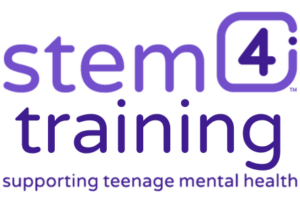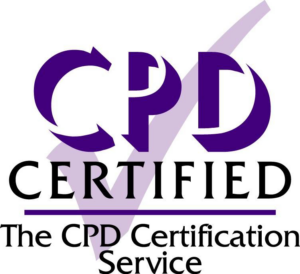This course will provide an opportunity for health and social care professionals and youth workers to improve their current knowledge of the digital lives of young people, to better support them.
Media Literacy & Mental Health
Course format
This course comprises of 4 60-minute webinars originally recorded with a live audience in November 2023.
1. Media literacy, digital inclusion, and online safety; their role in good mental health
“If you have nowhere to turn to, if in your offline life you’re by yourself, you have no one to talk to, there’s no one there for you. You can always go online and find somebody who will at least be generous enough to talk to you and to encourage you.”
Boy, 15, ADHD and Tourette’s syndrome, anxiety disorder
To participate and feel included in communities supports good mental health. Yet life for young people now is lived in online and offline communities, but not everyone can be or wants to be online.
Having access to a device and data helps, but without media literacy and digital skills, online risks can impact upon mental health.
In this webinar we discuss what supports good mental health, and how we reconsider this in the digital age, to reduce online harms and inequalities.
2. The challenge of finding online support and information for health
“It’s really hard to find that line between who’s telling the truth, who’s hopping on a trend and where people need help”.
Girl, 17, history of anxiety and depressive disorders
The internet has changed where we go to find information, and who we trust. If a young person is struggling with a mental health challenge, or just trying to work out who they are, they are faced with misinformation and disinformation alongside established facts.
In this webinar we discuss why disinformation becomes so prominent, tips on how to spot it and use fact-checkers, plus its impact on those struggling with mental health issues such as self-harm and eating disorders.
3. Opinions, influencers and the social pressures of the online world
“Do you honestly think that most people on TikTok showcase things about mental health … just for the sake of helping society out? … They’re financially gaining from that. … I feel like so many people are not genuine, they’re so fake, and people just don’t realise.”
Girl, 17
Information regarding health may now come to a young person from someone who may act like their best friend, yet who makes money from that interaction. As the influencer glamourises mental health issues, or a certain look or body shape, it can be very difficult for a young person not to compare themselves to the influencer, or identify with them.
In addition, powerful opinions and peer pressures can impact upon development and trigger mental health challenges.
In this webinar we discuss how the powerful social pressures of the online world can impact upon mental health.
4. The importance of digital skills in reducing inequalities
“Stay away from people online that you haven’t met. I understand people are on Tinder and stuff, but they need to check Instagram and see if you at least have some common friends…check things out. Don’t just start talking and send them pictures. If the person won’t show themselves on Facetime, then there is a reason for it.”
Young man, 19, anxiety, depression, online sexual abuse, cyberbullying
Whilst digital skills can help a disadvantaged young person improve their life chances, and gain, for example, employment or housing, media literacy can help them navigate other aspects of the internet.
Recent research has suggested young people are not born with instinctive skills on how to use the internet, and many would benefit from learning more digital skills in order to be more confident, resilient, and achieve better mental health.
In this webinar we discuss how supporting the development of digital skills and media literacy can help young people move beyond just being safe, and empower them.
About this course
The course aims to address the growing need for digital literacy guidance among health and social care professionals and youth workers. It focuses on educating participants about the negative, cyclical relationship between online harms and mental health, empowering them to enhance young people’s wellbeing and digital resilience.
Participants will have the opportunity to assess their current digital competencies, identifying strengths and areas for improvement. The curriculum aligns with the European DigComp Framework, allowing professionals to evaluate their skills using the Digital Skills Assessment Scale.
While the DigComp Framework covers multiple domains, this course emphasizes:
- Information and Data Literacy
- Communication and Collaboration
- Safety (with a focus on vulnerable young people and those with mental health challenges)
This training equips health and social care professionals and youth workers with the necessary skills to navigate the digital landscape effectively, ultimately benefiting the young people they serve.
Who is this course for?
This course will benefit mental health and social care and youth workers:
- Who want to develop confidence online by being informed of how to negotiate the digital world including an awareness of online harms.
- Who want to learn more about digital skills and competencies.
- To acquire knowledge and better measurement of digital skills.
- To learn about how digital skills and competencies can be impacted by factors associated with social adversity and mental ill health.
- To get to know about young people’s diverse digital experiences and how these vary based on their developmental level.
- To have evidence-based predictions on the complex impact of ICT use and digital skills on young people’s mental health.
- To understand how at-risk individuals (mental health, ethnic or cultural, social economic, gender) can benefit from online opportunities despite their potential risk factors.
- To promote digital skills and well-being within their practice.
- To support professional learning activities with peers and in furthering their digital skills and media literacy.
- To support others who might be involved in vulnerable individual’s lives (for example, parents and carers) by helping them further their digital skills and media literacy.
- To understand the concept of digital resilience and to help build this through the competency framework.
Course feedback
“The course was extremely informative and easy to follow. I enjoyed the learning and feel I have a much better understanding.”
“Lots of expertise from those delivering. A range of research, resources and signposting to further information. It was great to have a recorded webinar to follow at my own pace. This suited my busy working schedule.”
“It was much more informative than my previous basic knowledge and helped me to understand more of the risks and everything that can implement risks, and how to be safer online.”
“It was really engaging and accessible – all levels of digital ability can find the training useful.”
“Absolutely vital information to help us stay ‘in touch’ with younger generations and the complexities of their lives.”


